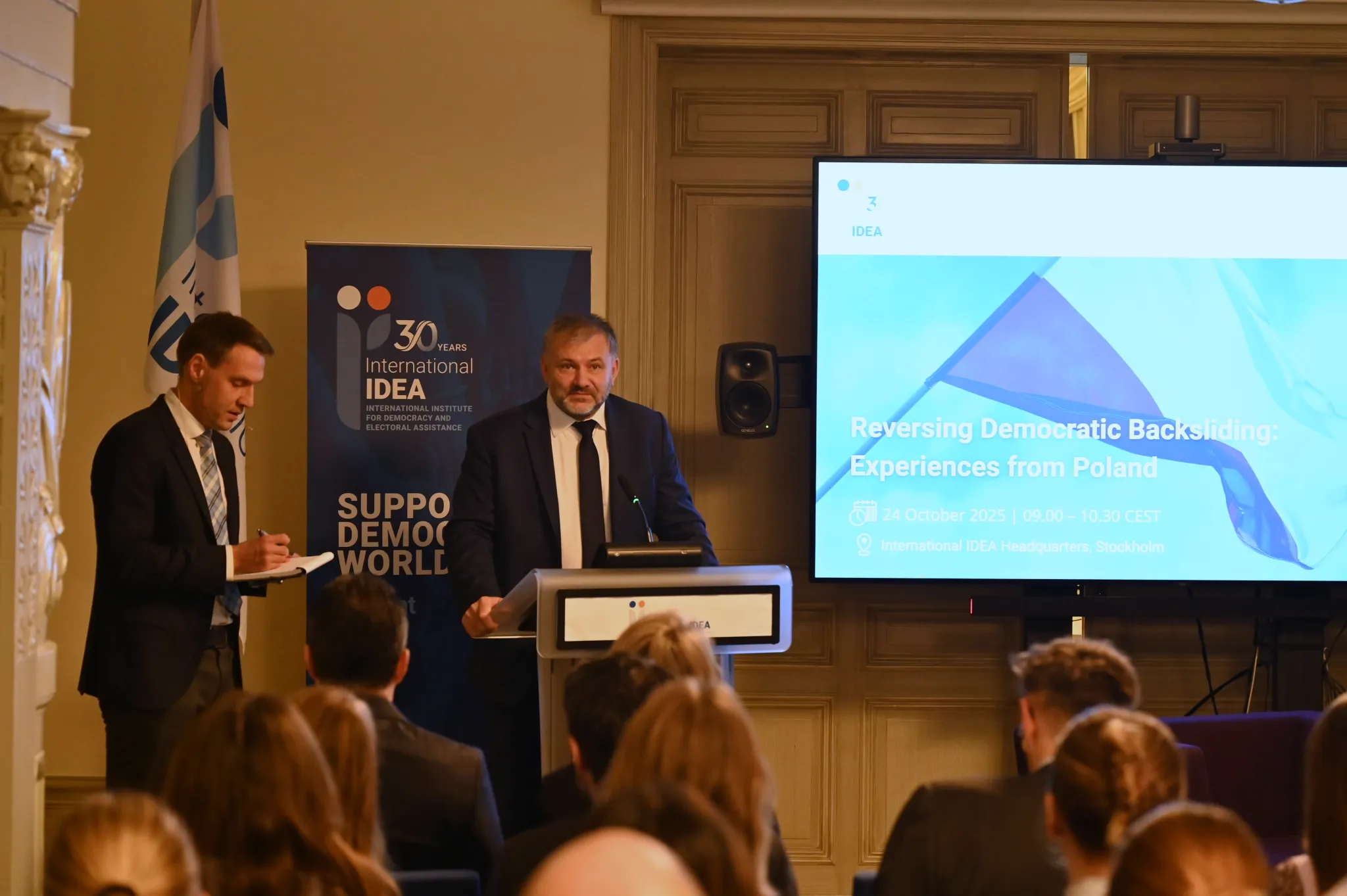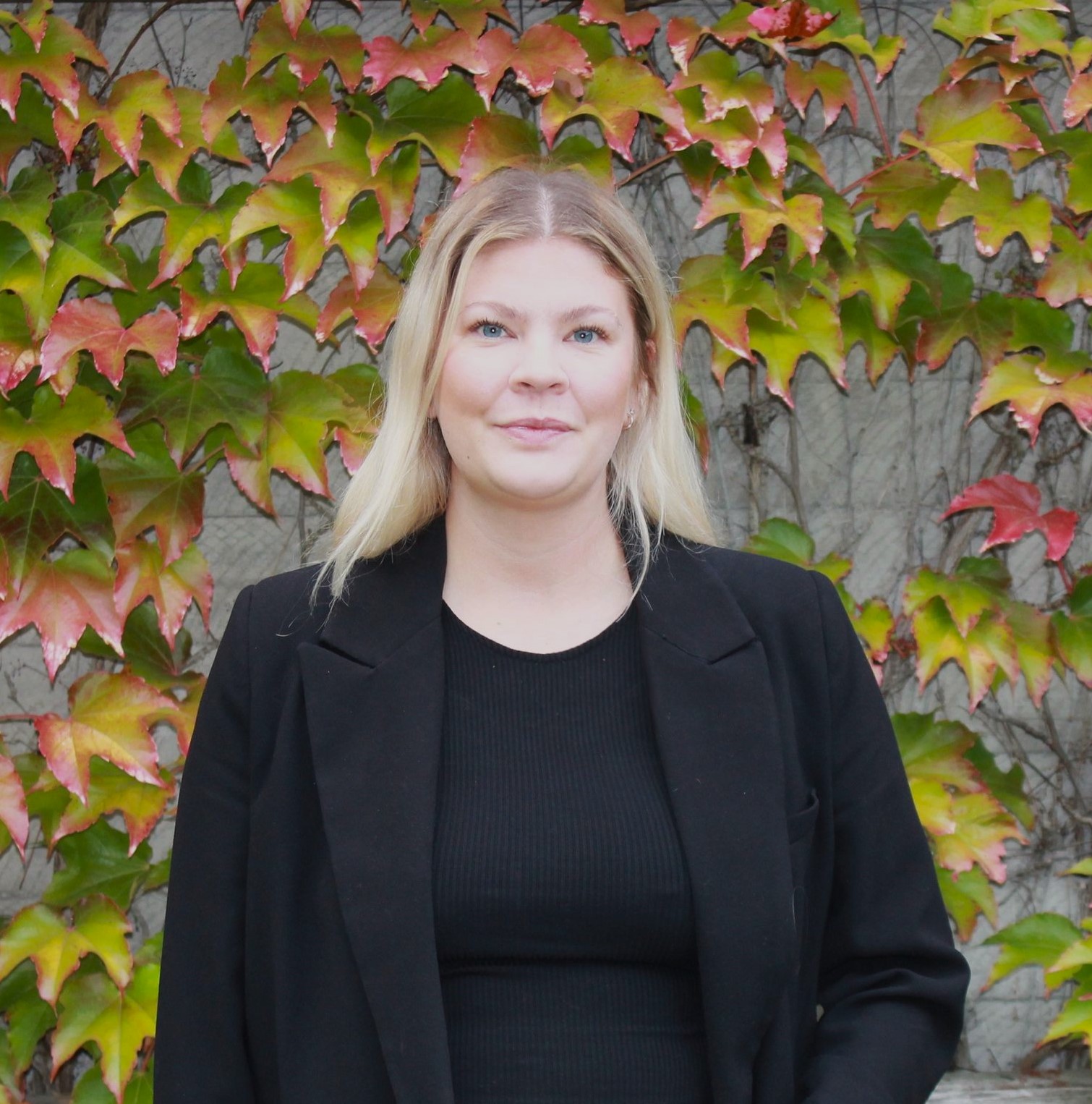Reversing Democratic Backsliding: Lessons from Poland

On October 24, International IDEA hosted an engaging discussion on “Reversing Democratic Backsliding: Experiences from Poland”, featuring a keynote address by Polish Minister of Justice Waldemar Żurek. The event brought together a high-level audience including diplomats, representatives from Sweden’s Ministry of Justice and the Ministry for Foreign Affairs, members of the Swedish Supreme Court, researchers, civil society organizations, and journalists to explore Poland’s journey of democratic restoration and the lessons it offers for democracies globally. The event took place in a room filled to its capacity, reflecting the strong interest and urgency surrounding the topic.
International IDEA’s Secretary-General Kevin Casas-Zamora opened the event by emphasizing that democracy is both a choice and a responsibility, one that must be reaffirmed continuously. He highlighted the value of learning from democratic success stories and fostering exchanges among states to strengthen democratic resilience—work that lies at the heart of International IDEA’s mission. Although Poland is not a Member State of International IDEA, its growing collaboration with the Institute holds significant importance as the country works to restore democracy after a period of regression.
Minister Żurek’s keynote remarks emphasized that democracy’s preservation demands constant diligence. A key message throughout was that democratic renewal is not only possible but achievable, as demonstrated by Poland’s experience recovering after a period of significant erosion.
The panel discussion, which included Polish Undersecretary of Justice Mr. Dariusz Mazur and Swedish Secretary of State for Justice Ms. Charlotte Kugelberg, underscored a shared commitment by Poland and Sweden to democracy and the rule of law, and highlighted how Poland’s experience restoring judicial independence offers valuable lessons for others.
As the panelists observed, backsliding often begins subtly, through attacks on free media and gradual changes to the justice system and constitution. The event underscored the importance of constant attention and targeted initiatives aimed at safeguarding democracy, along with the critical role of free media, vibrant civil society, and strong legal frameworks in defending democratic norms and independent judges.
A powerful analogy during the discussion captured the essence of the conversation: “Rule of law is like oxygen: when you have enough oxygen, you do not even notice it, but when you start to lack this oxygen, you will notice. So, we should be careful and cautious.” This vivid metaphor underscores how democracy ultimately rests on the rule of law, the foundation for all institutions and governance frameworks. To safeguard this foundation requires strong preventive measures, including robust checks and balances, an independent judiciary, an active civil society capable of resisting authoritarian tendencies, and constitutional provisions that prevent undue political interference.
When democratic institutions are weakened, rebuilding them is neither quick nor easy. It requires persistence and the establishment of safeguards to ensure that reforms are sustainable over time. The event concluded with a forward-looking call to embed the rule of law not only in politics, but in civic culture and emerging technologies: as one participant noted, “If AI is the future, we should teach AI the rule of law.” Democratic resilience requires whole-of-society vigilance and support—both to address new realities and to uphold the fundamental principles of democracy.




